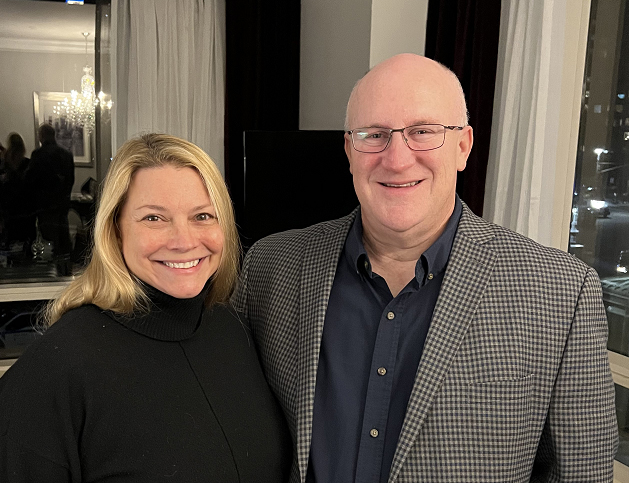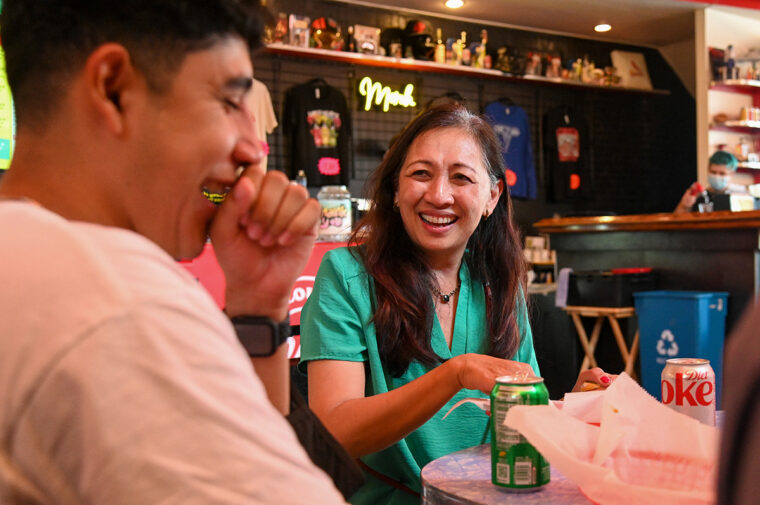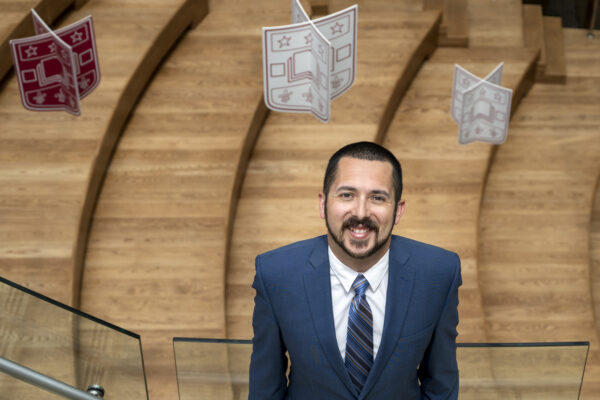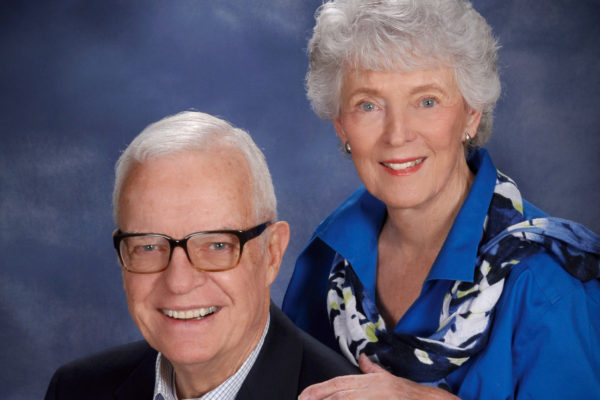In our highly polarized world, students often struggle to navigate tough conversations and engage with viewpoints that challenge their own, said Anna Gonzalez, vice chancellor for student affairs. That is why the Washington University in St. Louis Division of Student Affairs is introducing “Dialogue Across Difference,” an eight-week course that teaches undergraduate students how to explore difficult topics such as politics, religion, race, gender and socioeconomic identity in a positive and productive way.
“Right now, students are afraid to even disagree,” Gonzalez said. “On both the left and the right, there is a lot of, ‘You can’t say this; you can’t say that.’ That is not the promise of higher education. Through intergroup dialogue, our students will learn to listen without judging or recruiting. In the end, they may not agree, and that’s OK. But they will understand where the other person is coming from.”
Gonzalez developed “Dialogue Across Difference,” and Jacob Chacko, who recently joined the university as its first director of intergroup dialogue programs, will lead it, beginning this spring. Chacko formerly served as director of the Asian American Cultural Center at Rutgers University and earned his doctorate in education policy studies from the University of Illinois.
Each section of the course will consist of 18 students, who will examine a single topic after establishing the characteristics of constructive dialogue and debate. Two trained facilitators will then lead the class through a structured curriculum.
“This just can’t be a one-time conversation; it takes time to build relationships and listening skills,” said Gonzalez, noting the sessions will be in person. “We tell students, ‘This is hard. No multitasking, no being on your phone. You are in it.’”
Gonzalez currently is recruiting residential advisers, Washington University Student Associates and other student leaders to participate in spring sessions. The program will serve 400 students in its first year, with enrollment growing to 1,500 students in subsequent years. Visit “Dialogue Across Difference” to learn how to register for the course.
“Dialogue Across Difference” is being funded as a four-year pilot program through a $1 million pledge from Thomas B. McGowan IV, JD, and Nicolle C. McGowan, MD, of Cleveland, parents of a sophomore at Washington University. An ardent champion of free speech, Thomas McGowan believes the course can serve as a model for other universities.

“I want my children — and all children — to be exposed to every imaginable idea, opinion and fact … because that is how they find truth,” he said. “That is how they learn to get along with people from different backgrounds. And, that’s how they learn to become great leaders. Freedom of speech leads to truth, understanding, positive human interactions and progress. The concept of ‘cancelling’ someone because of their opinions and viewpoints is anathema to the fundamental purposes of higher education and human advancement.”
That lesson hit home for the McGowans back in the early 1990s when they were exchange students in Switzerland. They met a young Russian man who wanted to practice his English and soon became fast friends. Then they learned he was a member of the Communist Party.
“Anti-Communist sentiment was common in the U.S. at the time and I remember thinking, ‘Oh my gosh, it’s a real Communist standing in front of me,’” Nicolle McGowan recalled. “Then it hit me — that’s OK. He’s a person just like I’m a person. And because he’s been raised in this system, doesn’t mean he’s bad and because I’ve been raised in my system, doesn’t make me better. We’re just different. When you get to know people, you sort of push away the otherness that we’re so often taught to see.
The McGowans’ pledge supports the university’s efforts to provide a best-in-class experience for all students as stated in Make Way: Our Student Initiative, the fundraising campaign that launched in October. Chancellor Andrew D. Martin said “Dialogue Across Difference” will promote core Washington University values of critical thinking, free speech and civil discourse.
“One of my responsibilities as chancellor is to help cultivate a campus community in which all people have a voice, the freedom to exercise their rights and to speak out against injustice, and an opportunity to learn from one another without insult or intimidation,” said Martin, who leads the seminar “Free Speech on Campus.” “The McGowans’ gift for ‘Dialogue Across Difference’ will help our students lead with civility, humility and empathy. That, in turn, will enable them to become real change-makers.”



